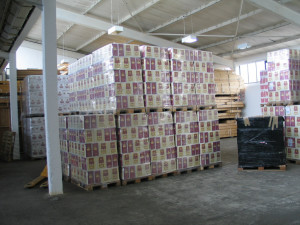The following is a guest post by winery compliance expert, Ann Reynolds. Please see the end of this post for a little more about her.
As a winery compliance expert, I talk to a lot of people who are at the planning stage of starting a new wine business. Not surprisingly, they are very excited about having their own wines made & bottled, designing their labels and the prospect of being able to actually sell it. I always enjoy hearing their enthusiasm and will share in their excitement, but at that point in our conversation I get to become a bit of a party pooper/reality check for their barely born wine business when I explain the licensing that will need to be in place in order for their wine business to be up and running legitimately.
There are some very specific questions I always ask in these conversations which are designed to tell me how to best guide them toward which initial federal and state licenses their business will need to obtain. The questions are focused around what the flow of their business model will look like for how their wines will be made & bottled, and specifics about who will be purchasing their wines.
The list of questions I ask follows the same course each conversation that I have, and I’ll share it here to give an idea of what topics to consider if you are planning on starting your own wine business. Planning ahead of time for these topics will definitely save you from setting up your wine business licenses the wrong way, and will also help to give an idea of what the regulating agencies and wineries take into consideration when approving applications or taking your business on as a client.
Question 1:
What is the business model for your wine business?
Here is where I have them tell me their story behind why they want to start a wine business. Are they planning to grow or purchase grapes to have their wines made? Are they planning to just purchase wine from the bulk market and blend them to make their wines? Do they want to make wine at their house or do they already know a winery that they will contract with to have their wines made and bottled? Will more than one winery process wine for them? I’m trying to gather as much of a picture as possible of what their wine business flow will look like all of which tells me what their license types with the various government agencies will need to be.
Question 2:
Who do you plan to sell your wines to?
I’m asking here about what their plans are as far as what individuals or businesses they’ve already targeted as solid purchasers for their wines. I ask this question for compliance planning purposes but also because I want them to have begun putting some serious thought into who their customers are going to be, and how real they are. (Do they already know all these potential customers– or are they just fictional at this point?) I’m already nudging them towards what their marketing plan will be for making steady sales of their wines, as I realize that it is a struggle for many young wine businesses that have not planned for this.
Question 3:
Where are those customers you plan to sell to located?
Let me clarify here that the majority of people I talk to are located in California so I ask them specifically do you plan to sell your wines to individuals outside of California? Their yes or no answer immediately tells me which type of license their business will need to have in place. If their answer is yes I will follow up by asking if their plan is to sell at least 25% of their wine to individuals outside of California (the direct-to-consumer wine sale model).
What I’m wanting them to take into consideration here is that while selling their wine following a direct to consumer model approach can be very successful, they will want to also take into consideration whether or not that plan on a state by state basis will be a viable one for their business. It may take them some time to develop a following that allows them to grow to the point of making steady sales in other states and make a profit from those sales.
Question 4:
When are you planning to make your first wine sales?
The majority of people who I talk to are contacting me at a good spot in their overall time line with their
wine business. That is they may already have some wine made and sitting at a winery but they are still months out from that wine being bottled and ready for actual sales.
The wheels of the governing regulating agencies that permits and licenses need to be obtained through to make their wine business legitimate don’t turn terribly quickly. I share in these conversations that they will need to anticipate a minimum of 3, and up to 6 months for their license applications to be approved. Those licenses will need to be in place before they can make any sales, and some wineries will also require them to be in place before they will bottle your wines.
Final Thoughts
Winery compliance is very much about having a big picture view of your wine business’ activities. While it is key to set up a new wine business with the appropriate licensing to fit their business model, I also realize that most business plans are going to change over the years after they are up and running and making sales. Those changes may mean additional changes to their original licensing. No matter what if they start off having a basic idea of how their business flow backs into the required licensing they have a much better chance of setting it up correctly from the get go.
Ann Reynolds is a winery compliance expert based in Napa, CA. With over 20 years in the Napa wine industry her business, Wine Compliance Alliance assists new and existing wineries and wine businesses with their required licensing, reporting and compliance training.
She can be reached at: www.winecompliancealliance.com



2 comments for “Taking Your First Steps In Starting A New Wine Business”